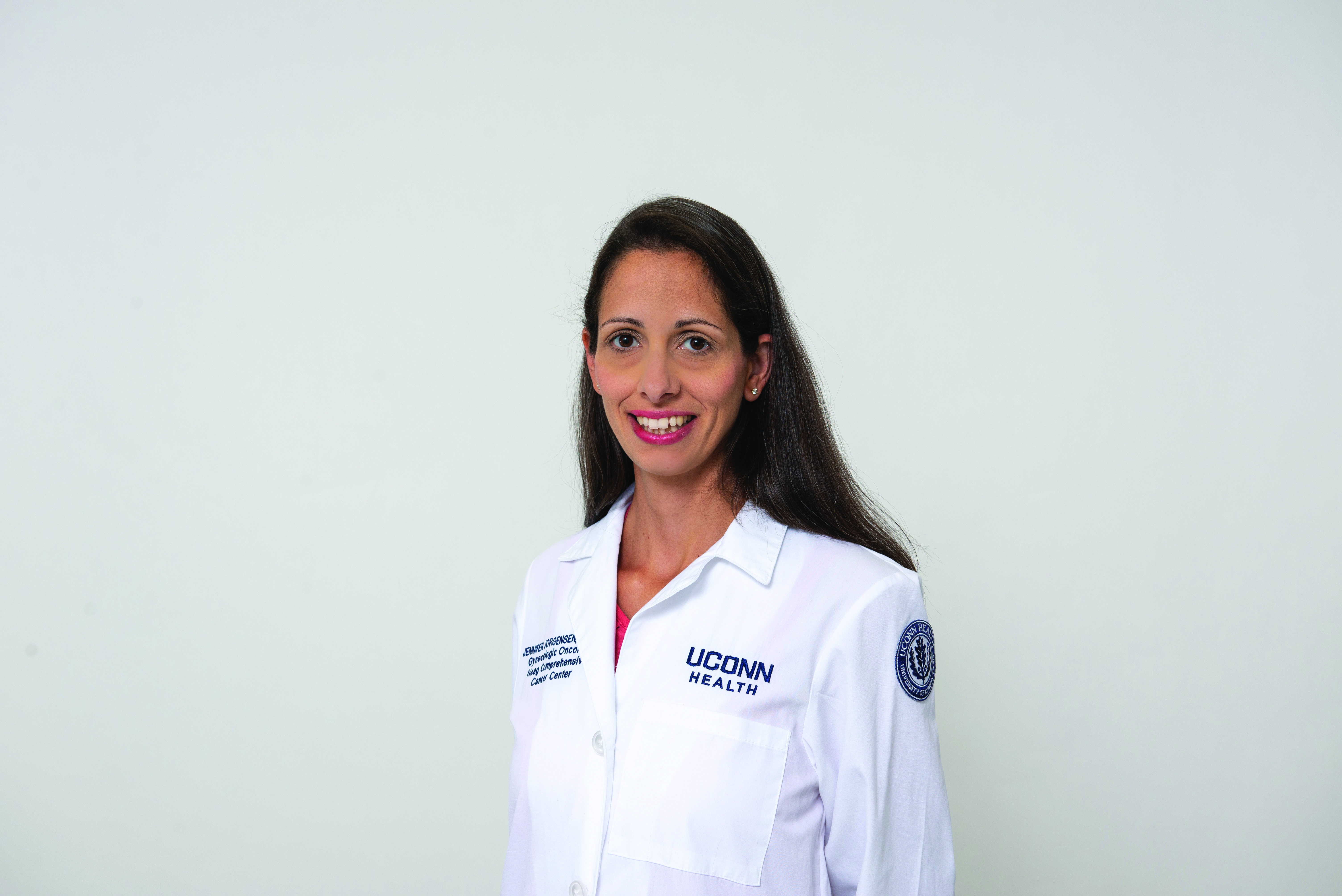This story originally appeared in UConn Health Journal.
Years of experience, fresh perspective, and a comprehensive team approach combine to provide unparalleled care in UConn Health’s gynecologic oncology team at the Carole and Ray Neag Comprehensive Cancer Center.
Dr. Jennifer Jorgensen, who recently completed a gynecologic oncology fellowship at Albert Einstein College Hospital in the Bronx, N.Y., has joined Dr. Molly Brewer, Dr. Bradford Whitcomb, and a team of nurses to provide complete cancer care from diagnosis through treatment, whether a patient needs surgery, chemotherapy, radiation, or palliative care.
All three doctors provide surgery options that include open, laparoscopic, vaginal, and robotic techniques to treat all types of gynecological cancer including vulvar, ovarian, vaginal, cervical, and uterine. They also treat patients with premalignant lesions and those at high risk due to genetics, using molecular and genetic data to provide better outcomes for the patient.
During her residency and fellowship, Jorgensen spent a lot of time with underserved patients, helping her understand the socioeconomic issues and support systems that play into a patient’s care. Knowing of the potential barriers, Jorgensen is dedicated to focusing on the whole patient and emphasizes the importance of community outreach.
Multidisciplinary specialists including nurse navigators, social workers, behavioral health specialists, and genetic counselors are integrated into the team, ensuring a patient will be connected with a resource for any need that may arise.
It’s early in her career, so Jorgensen says she soaks in all she can from her teammates. “Dr. Brewer is an exceptional mentor and role model, helping me with her experience, but also making sure that she helps everyone around her grow,” says Jorgensen. “Dr. Whitcomb is a great mentor on the day-to-day practical. I find everyone here is so dedicated to their job and the patients.”
Brewer, Obstetrics and Gynecology chair, has been a pioneer for women in the field for over 20 years. She is often heard saying, “I love my patients.” She says the challenge of taking care of women with difficult cancers, and the inspiration of watching them make it through, is why she chose gynecologic oncology.
Whitcomb is a retired U.S. Army lieutenant colonel who served in the Army Medical Department for more than 25 years. His first wife died of advanced breast cancer, giving him a new perspective on how to care for patients with advanced or recurring cancers.
“I very much care about the families,” he says.



